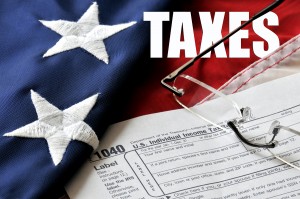Over the past several years, there has been a lot of discussion of imposing higher taxes on investment income. Proponents of this move say the funds can be utilized to pay down the budget deficit, fund infrastructure projects and put towards education and healthcare. Opponents, meanwhile, argue that the government should instead make cuts and allow the people to have their own money.
Where does the general public stand on this crucial tax policy? According to the 2014 Tax Fairness Survey by WalletHub, a personal finance community, a substantial majority want higher taxes on investment income, the average citizen thinks the tax code is too complicated and a small minority endorse the proposal of a flat tax.
 More than 80 percent say the tax code is either “complex” or “extremely complex.” Forty-four percent of those in agreement say the best way to make the tax code fairer and more understandable is to institute fewer deductions than what is presently installed.
More than 80 percent say the tax code is either “complex” or “extremely complex.” Forty-four percent of those in agreement say the best way to make the tax code fairer and more understandable is to institute fewer deductions than what is presently installed.
Ninety percent of survey respondents think investment income should be taxed at least as much as wages: 58 percent say investment income and wages should be taxed the same, while one-third say investment income should be taxed higher than wages.
It was reported late last year that the number of Americans who personally or jointly with spouse own a stock is at an all-time high. A Gallup study found that only 52 percent of Americans invest in the stock market, down from its all-time high of 65 percent in 2007.
“The problem with taxing investment income is that capital tends to be much more mobile than labor. This means that high taxes on investment returns could lead to reductions in investment which is not good for anyone. How responsive investment is to tax changes is a subject of controversy, but I think it is fair to say that it is more responsive than labor supply,” said Alexis Anagnostopoulos of Stony Brook University in a statement.
“This argument has to do with what is efficient, but it abstracts from ‘fairness’. It does sound like a fair thing to do to tax capital and labor income equally. But one has to be careful to tax capital income in ways that do not directly affect the returns to investment.”
Despite the reiteration of the old adage that we’re being taxed to death, the general consensus of the study is that Americans say taxes on wages and gasoline are fair, while alcohol and tobacco taxes are also viewed as being quite fair.
Less than one-quarter (24 percent) of respondents support the concept of a flat income tax, a measure that is being promoted across the United States as having all Americans pay the same rate, which is usually pegged between 13 and 20 percent.
In addition, close to two-thirds (65 percent) concur that corporations should be paying higher tax rates than consumers.
At the end of it all, nearly two-thirds (61 percent) of Americans say tax fairness is more important than what policies are best for the economy. Also, less than one-quarter (20 percent) of Americans say ditto when it comes to tax equality.



